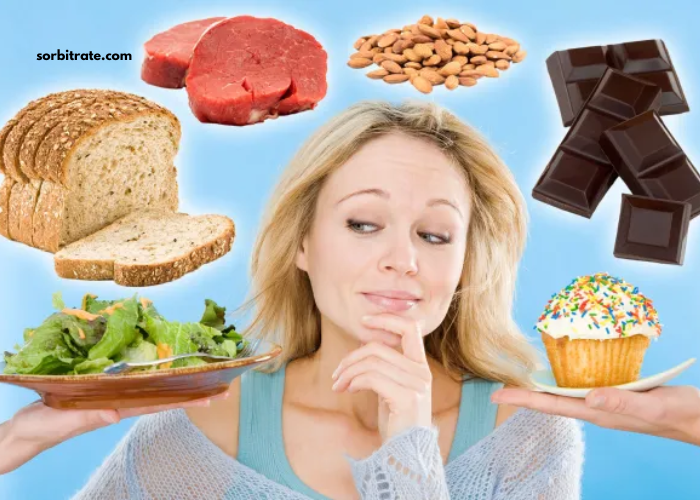When it comes to dieting, misinformation spreads quickly. From social media influencers to outdated fitness magazines, myths about weight loss and nutrition often confuse even the most health-conscious individuals. This article breaks down popular diet myths and provides evidence-based guidance on what actually works for sustainable health and fitness.
Myth 1 – Carbs Make You Fat
The Truth:
Carbohydrates have been wrongly demonized for decades. While it’s true that excessive calorie intake, including carbs, can lead to weight gain, carbs themselves are not the enemy. Whole grains, fruits, and vegetables are rich in fiber, vitamins, and energy, which are crucial for body function and metabolism.
What works: Focus on complex carbs such as oats, quinoa, brown rice, and sweet potatoes. Avoid refined sugars and heavily processed foods instead of cutting out all carbohydrates.
Myth 2 – Skipping Meals Helps Lose Weight
The Truth:
Skipping meals, especially breakfast, may slow down your metabolism and lead to overeating later in the day. It also negatively impacts energy levels and concentration.
What works: Eating smaller, balanced meals throughout the day keeps blood sugar levels stable and prevents binge eating. Consistency is key in regulating your body’s hunger and satiety cues.
Myth 3 – All Fat Is Bad
The Truth:
Fats are essential for brain function, hormone production, and the absorption of fat-soluble vitamins like A, D, E, and K. However, not all fats are created equal.
What works: Focus on healthy fats such as those found in avocados, nuts, seeds, olive oil, and fatty fish. Limit trans fats and excessive saturated fats from fried foods and processed snacks.
Myth 4 – Detox Diets Cleanse Your Body
The Truth:
The idea that juice cleanses or detox teas flush out toxins is not scientifically supported. The human body already has a highly effective detox system—the liver, kidneys, and lungs.
What works: Instead of relying on detox fads, maintain a hydrated, balanced diet rich in fiber, fruits, and vegetables to support your natural detoxification processes.
Myth 5 – You Need to Eat Less to Lose Weight
The Truth:
Extreme calorie restriction can lead to muscle loss, nutrient deficiencies, and a slowed metabolism. You may initially lose weight, but it is rarely sustainable and often leads to rebound weight gain.
What works: Create a modest calorie deficit by reducing high-calorie junk foods and increasing physical activity. Eating enough to support your body while still staying in a deficit is a sustainable strategy.
Myth 6 – High-Protein Diets Are Harmful
The Truth:
There’s a misconception that high-protein diets harm the kidneys. This only applies to people with pre-existing kidney conditions. For healthy individuals, protein is essential for muscle repair and satiety.
What works: Include lean protein sources like chicken, fish, legumes, tofu, and eggs in every meal. Spread protein intake throughout the day to maximize muscle maintenance and support metabolism.
Myth 7 – You Can Spot-Reduce Fat
The Truth:
It’s impossible to burn fat from a specific area by targeting it with exercise. Spot reduction is a widely perpetuated myth.
What works: Fat loss occurs systemically, not locally. Incorporate full-body strength training, cardio, and a healthy diet to reduce overall body fat.
Myth 8 – Eating After 8 PM Causes Weight Gain
The Truth:
Your body doesn’t magically store fat after a specific time. Weight gain is about total calorie intake versus expenditure, not the time of day you eat.
What works: Focus on what and how much you eat rather than when. If your overall daily calorie balance is in check, eating late will not derail your goals.
Myth 9 – Supplements Are a Must for Weight Loss
The Truth:
While some supplements can support certain deficiencies or training goals, they are not magic pills for fat loss. Many over-the-counter fat burners are unregulated and potentially unsafe.
What works: A well-rounded diet rich in whole foods provides all the nutrients most people need. Consult a healthcare professional before considering any supplement.
Myth 10 – Vegan or Keto Diet Is Best for Everyone
The Truth:
There is no one-size-fits-all diet. Each person’s body, metabolism, preferences, and health conditions differ. What works for one may not work for another.
What works: The best diet is one that is balanced, enjoyable, sustainable, and meets your individual health goals. Whether it’s Mediterranean, vegetarian, or low-carb—choose a plan that supports long-term consistency.
FAQs About Diet Myths
FAQ Section
Q1. Is it true that drinking cold water slows down digestion?
A: No. There’s no strong scientific evidence supporting this. Cold water may momentarily slow digestion, but the body quickly adjusts the temperature of consumed liquids. Drinking water, whether warm or cold, aids digestion and hydration.
Q2. Does eating smaller meals frequently increase metabolism?
A: Not necessarily. The total number of calories consumed matters more than meal frequency. Some people thrive on three meals a day, while others prefer five smaller ones. Choose a pattern that keeps you full and energized.
Q3. Can eating fat make me fat?
A: Only in excess. Fats are more calorie-dense (9 kcal per gram) than proteins or carbs (4 kcal), so portion control is key. Healthy fats in moderation are actually beneficial.
Q4. Are sugar-free or diet products healthier?
A: Not always. Many sugar-free products contain artificial sweeteners, sodium, or unhealthy additives. Read labels carefully and don’t assume “diet” equals healthy.
Q5. Does metabolism slow with age, making it impossible to lose weight?
A: Metabolism does slow with age, but not drastically. Maintaining muscle mass through strength training, eating enough protein, and staying active can significantly mitigate this effect.
Conclusion
In a world saturated with diet trends, influencers, and misinformation, it’s essential to separate myth from fact. Sustainable health is not about quick fixes, starvation, or extreme regimes—it’s about balanced nutrition, movement, sleep, and consistency. Before following any trending advice, ask yourself: “Is this backed by science, and does it suit my lifestyle long-term?” Because the real secret is—what works is what lasts.

